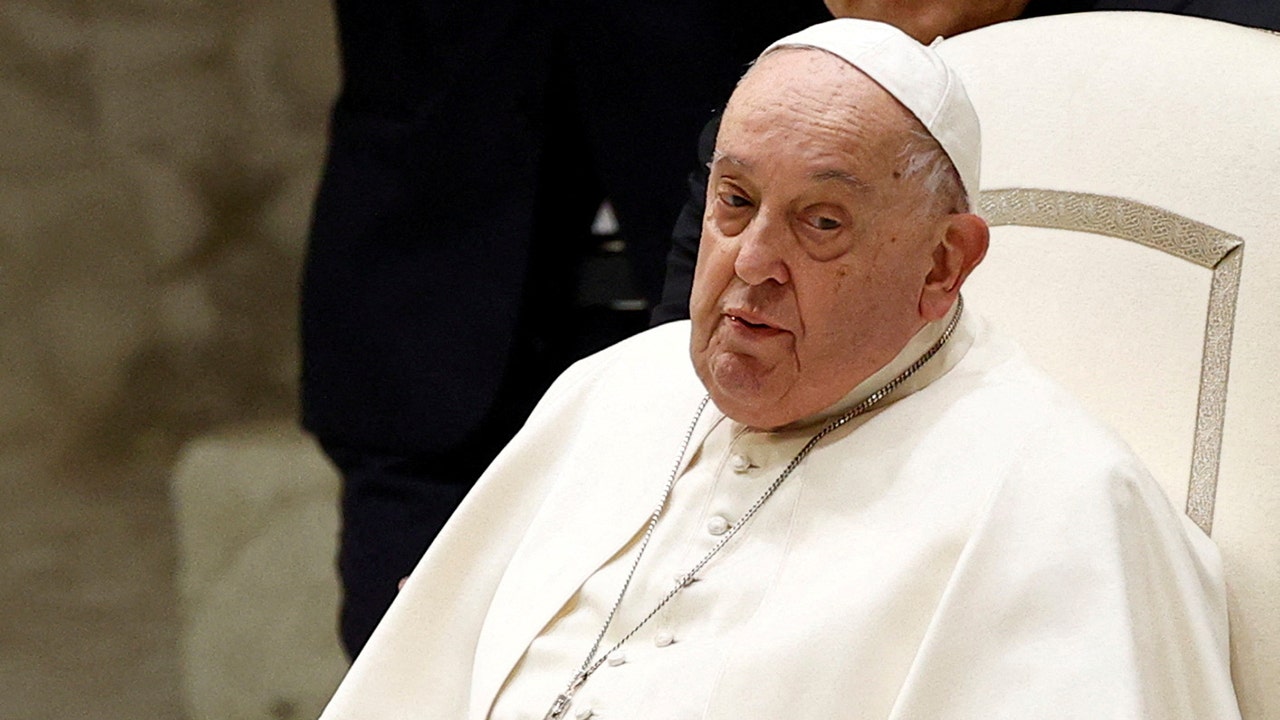On Thursday in Atlanta, the Argentine national soccer team will kick off the 2024 edition of Copa América, South America’s biggest soccer championship, with a game against Canada. Fans around the world, but especially in Argentina, have been eagerly awaiting this day ever since their beloved squad, led by perhaps the greatest soccer player of all time, won the 2022 World Cup.
But when Lionel Messi, the Argentine captain and superstar, takes the field at Mercedes-Benz Stadium with his teammates as the favorites to defend their 2021 Copa América title, a simmering sadness will follow him.
Will this be the last time Mr. Messi, who turns 37 next week and said two years ago that it was his final World Cup, wears the blue and white Argentine uniform in a major tournament? Will this be the last time one of the most famous humans on Earth, who brought joy to many during unstable times in his homeland, represents his soccer-obsessed country?
“He’s already saying goodbye, with the interviews he’s been giving, it seems like he’s preparing us for it,” said Sergio Colque, 40, an electrician, as he waited to play in a recreational soccer match last weekend in Buenos Aires, the capital of Argentina.
Jonathan Icikson, 27, an ambulance dispatcher, was with friends outside a bar last week watching Argentina play against Guatemala in its final tuneup before Copa América. “The sadness, obviously, can’t be measured in words,” he said, “but not all endings are happy. All good things come to an end at some point.”
This Copa América will certainly be the end for this group of Argentine players.
Ángel Di María, 36, a star in his own right and Mr. Messi’s teammate of 16 years, has said he will retire from international duty after the three-week competition ends. Other veterans, such as 36-year-old Nicolás Otamendi, haven’t specified how much longer they will go on, but age is catching up to this golden generation of Argentine soccer.
“There’s a bit of fear that it’s all ending,” Mr. Messi said about his career in a recent television interview.
When Argentina defeated France in the World Cup final in Qatar, it was the country’s first title since 1986. Another Argentine superstar, Diego Maradona, one of the greatest players of all time, led that team to victory.
But in his four previous attempts, and through the ups and downs of his relationship with his country, Mr. Messi had fallen short in living up to the expectations as Mr. Maradona’s successor. It was the one achievement that had eluded Mr. Messi, who has claimed a record eight Ballons d’Or awards as the world’s best player.
Yet when Mr. Messi finally did it, Argentina celebrated unlike ever before. Five million people — roughly 10 percent of the country’s population — filled the streets of Buenos Aires for the national team’s parade, one of the largest events in Argentina’s history.
“We experienced the World Cup in a difficult moment,” said Lorena Rovere, 45, a pharmacist in Buenos Aires. “Then we came back to reality.”
Argentina’s economy has been mired in a recession for years and continues to have one of the world’s highest inflation rates, at roughly 276 percent annually.
Sworn into office in December vowing to fix Argentina’s finances, President Javier Milei, a right-wing libertarian, warned that things would get worse before they got better as he instituted a drastic austerity program. He promised to take a “chain saw” to public spending, blaming it for the country’s economic ills.
Unemployment has risen this year, poverty has soared and a growing number of Argentines are finding it difficult to make ends meet.
The senate approved a bill this month that Mr. Milei said would make Argentina more attractive to investors by, among other things, paving the way for privatizations and doing away with labor protections. The legislation led to protests and the detention of more than 30 people.
To many Argentines, watching Mr. Messi and Co. dart around a soccer field, perhaps for a nostalgic final run together, provides a much welcomed, if momentary, respite.
“It won’t solve our country’s deeper issues,” said Gabriel del Rio, 45, a youth soccer coach and a city traffic light inspector in Buenos Aires. He said his 27-year-old son recently started the application process to obtain an Italian passport, and he believes that living abroad could be the answer for his 16-year-old daughter, too, because of the limited opportunities in Argentina.
But soccer “does provide a temporary joy to people,” Mr. Del Rio said. “The players understand this; they knew it during the World Cup and now with Copa América. It’s about giving people a brief distraction, something to enjoy amid ongoing challenges.”
Manuel Peñalba, 21, a university student in Buenos Aires who works as a freelance video editor, said Argentina “deserved” the World Cup title given the country’s problems.
He said he plans to watch all of Argentina’s Copa América games with friends. They will have to rely on television broadcasts since all the matches in the tournament, run by the South American soccer confederation Conmebol, will be played in the United States, for the second time in the competition’s 108-year history. That is part of an agreement with Concacaf, the confederation governing the sport in North and Central America and the Caribbean.
In addition to the United States and Canada, this year’s Copa América invitees from outside of South America include Mexico, Panama, Jamaica and Costa Rica.
Beyond the obvious financial benefits of playing in the United States, Copa América is also a tuneup for the 2026 World Cup, which will be held in the United States, Mexico and Canada.
Mr. Messi has more recently become noncommittal about playing in the next installment, when he will be 39, an age he has admitted makes it difficult to compete at that level.
In a recent interview with ESPN Argentina, Mr. Messi said he thinks his current club, Inter Miami, will be his final one. (Last year, he surprised many when he signed with Inter Miami of Major League Soccer, a relatively new league in North America, after two decades of playing in more talented leagues in Europe, with Barcelona and Paris-St. Germain.)
But winning the World Cup has breathed new life into Mr. Messi. After struggling to win for Argentina — he briefly retired from the national team after losing the World Cup final to Germany in 2014, and the Copa América finals to Chile in 2015 and 2016 — he has said he wants to be around now more than ever.
“I’m aware that there’s not a lot of time left,” he told ESPN recently.
Lionel Scaloni, the coach of the Argentine team, told Telemundo Deportes this month that “we Argentines are too melancholic.”
“We are already thinking about the day when he’s gone when he’s still playing,’’ he added. “Let’s enjoy him and we’ll see tomorrow.”
Alejandro Wall, an Argentine sports journalist who has written seven soccer books, including one about Mr. Messi last year, said it was hard to imagine a national team without Mr. Messi.
But, he added, the team was already entering “a moment of transition,” with Mr. Di María retiring, Mr. Messi logging fewer minutes and talented younger players emerging.
“To a large extent, Messi is going to test himself in this Copa América,” Mr. Wall said, “and see how he comes out of it to see what’s next.”
Many fans said they hoped that Mr. Messi would hold on for a little bit longer, even if only as a lesser-used player, for the next World Cup. Saying goodbye is hard. He could still provide a few more smiles back home.
“The team knows how to play without Messi,” Mr. Peñalba said. “It’s the end of an era. It’s painful, but it’s coming.”





